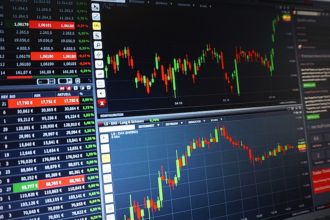Should I change my trading strategy during inflation?

From newbie traders to seasoned investors alike, rising inflation is often a cause for concern. Inflation erodes the value of existing real savings. It also leads to increased costs for companies in the form of higher prices for raw materials and increased wage demands.
Companies that can pass these costs on to consumers can flourish in such an environment, as long as their price rises don’t lead to a slump in demand. But for businesses that can’t pass on these increased costs, profit margins get slashed, forcing investors to reevaluate the outlook and cut their holdings accordingly.
This change in investing behaviour can provide trading opportunities. Here, we’ve got the lowdown on the economic effects of price rises, and what this means for traders.
How does inflation affect your trading portfolio?
It’s difficult being an investor when inflation takes hold. But it’s even worse for non-investors, especially those on fixed incomes. With interest rates so low, and inflation more than 5% in the UK and well over 7% in the US, savings lose significant value even over a short period. Real interest rates, that is interest rates minus inflation, are still sharply negative and will remain so even if central banks were to raise their key rates many times over.
Using risk management tools like stop-loss orders can help traders protect themselves from the unpredictable nature of the market during inflation. These insert a point, for example, at 5% below the purchase price of an asset, capping the amount you can potentially lose at 5%. Trade Nation’s trading simulator lets you experiment with this for free, enabling you to try these risk management tools virtually to get a better picture of how they work in practice.
Which stocks perform well during inflation?
There’s no such thing as a perfect inflation hedge. Gold is frequently cited as a good one, although the correlation between inflation and rising gold prices isn’t strong. But when it comes to stocks that can do well in an inflationary environment, diversified miners can hold their own, as can industrials and companies that pay good dividends.
Banks can do well when interest rates rise, as the spread between where they can borrow and lend widens, boosting their profitability. This is compounded, as savvy investors look to get rid of surplus cash and borrow as much as they can when inflation picks up. They lever up to spend cash on hard assets like property and artworks where prices rise, while inflation reduces the value of the money they have borrowed. Banks also tend to pay good dividends when they’re doing well, as do oil producers.
All businesses will face higher costs, whether that be from raw materials or in paying higher wages, especially in an environment where unemployment is low. Those companies that can pass on these costs can hold their own. Consumer staples for instance. Food producers and retailers are obvious examples, as are utilities..
Property also does well, so Real Estate Investment Trusts (REITs) are popular. This is especially the case where there’s a housing shortage, such as in the UK and US. In the commercial sector, the post-pandemic bounce-back is leading to increased demand for office space, despite many people still working from home. Also, the shift towards e-commerce requires large storage facilities. But it’s worth being wary of tech stocks. Equities, especially those in the growth/tech sector, are highly rated, propped up by monetary and fiscal stimulus which keeps borrowing costs historically low. When interest rates rise, borrowing costs do as well, and this is bad news for growth stocks generally.
If inflationary pressures continue to grow, higher interest rates and bond yields are inevitable. The Bank of England has already started to raise its key interest rate and the US Federal Reserve is expected to follow soon. Some say this will damage economic growth as corporate sales and earnings will suffer. Higher borrowing costs will crimp demand, and force governments either to cut spending or print more money and deal with even higher inflation, which could spiral out of control. But others maintain that markets are already pricing in tighter conditions. Given how low interest rates have been over the past twelve years, corporations should be able to withstand modest rate hikes now.


